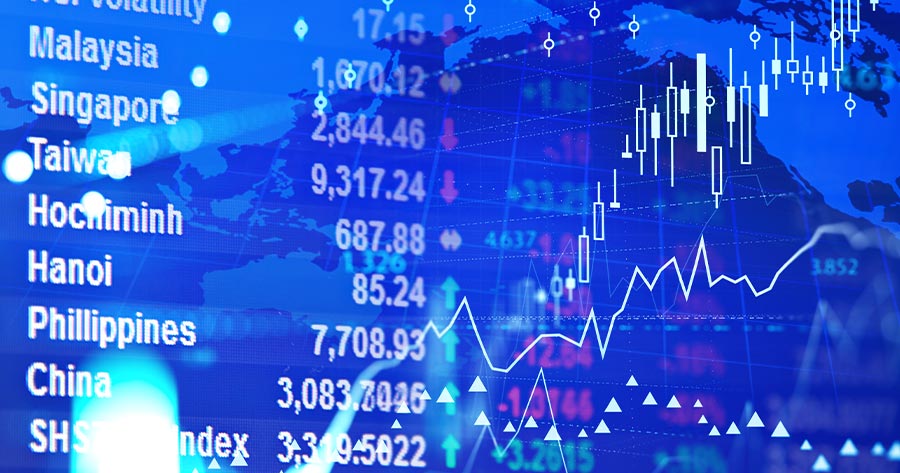On Friday morning (22 Mar, 9:41 AM, GMT+7, Bangkok time), most major indices in Asia Pacific decreased despite the rise of Japan’s Nikkei, which increased above 41,000 points during the trading session and recorded a new all-time high after the country’s inflation accelerated in February. Japan’s headline inflation in February rose to 2.8% from 2.2% seen in January, and core inflation rates also surged to 2.8% from 2%, conforming to the expectations from economists polled by Reuters.
South Korea’s KOSPI slid by 0.36% to 2,744.92. Australia’s ASX 200 fell by 0.49% to 7,743.7, while Japan’s NIKKEI rose by 0.13% to 40,870.3.
As for stocks in China, Shanghai’s SSEC declined by 1.09% to 3,043.46. Shenzhen’s SZI contracted by 1.21% to 9,565.81, and Hong Kong’s HSI slumped by 2.07% to 16,514.47.
Meanwhile, the US stock markets edged higher on Thursday as the Dow Jones Industrial Average (DJIA) grew by 0.68% to 39,781.37. NASDAQ surged by 0.2% to 16,401.84, and S&P 500 increased by 0.32% to 5,241.53. VIX slid by 0.92% to 12.92.
As for commodities, oil prices settled lower on Thursday following a call for a ceasefire in Gaza from the reports of a United Nations draft resolution and the demand data from the U.S. Energy Information Administration (EIA), which indicated weaker US crude inventories. Brent decreased 17 cents or 0.2% to $85.78 per barrel, and the West Texas Intermediate (WTI) dropped 20 cents or 0.3% to $81.07 a barrel.
This morning, Brent lost 56 cents or 0.65% to $85.22 a barrel, and WTI declined 53 cents or 0.65% to $80.54 per barrel.
Meanwhile, gold futures edged down by 0.35% to $2,177.1 per Troy ounce.




